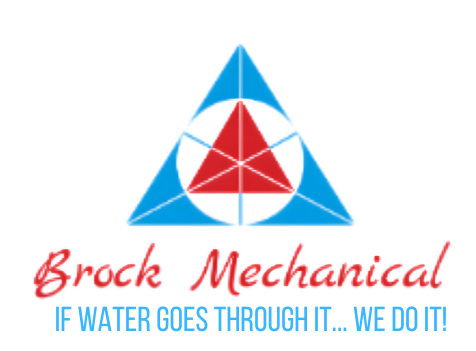
Air conditioning can be an oasis in our homes and offices during the sweltering summer heat, providing cool comfort when needed. However, this comfort can come at the cost of both our wallets and the planet: air conditioners consume energy that increases utility bills while also increasing greenhouse gas emissions.
Fortunately, there are ways you can make your AC more energy-efficient to save both money and the planet. This article explores strategies on how to make AC work better for maximum efficiency and greater savings.
Understanding the Importance of AC Energy Efficiency
Before diving into practical strategies, it’s crucial to understand why AC energy efficiency matters. Let’s explore its environmental, economic, and health impacts.
Environmental Impact
Air conditioning units, particularly older models, are notorious energy hogs. They consume large amounts of power that is often generated from fossil fuels. This contributes to air pollution and also accelerates climate change by increasing greenhouse gas emissions.
Economic Burden
High energy consumption translates into hefty utility bills, causing financial strain for homeowners and businesses alike. Inefficient AC systems can significantly inflate your monthly expenses, especially during the sweltering summer months.
Comfort and Health
An inefficient AC system might struggle to maintain a comfortable temperature, leading to uneven cooling and hot spots in your living or working spaces. This can compromise your comfort and even affect your health by exposing you to temperature extremes.
Tips for Air Conditioning Efficiency
Now that we understand the significance of AC energy efficiency, let’s explore some practical tips on how to make your AC more efficient and lower your energy bills.
Regular Maintenance
Proper maintenance is the cornerstone of air conditioning efficiency. Regularly servicing your AC unit can significantly enhance its performance and longevity. Here’s what you can do:
Clean or Replace Filters
Dirty filters restrict airflow, forcing the AC system to work harder to cool the space. Clean or replace filters every 1-3 months, depending on usage, to ensure optimal airflow and energy efficiency.
Clean the Evaporator and Condenser Coils
Dirt and debris can accumulate on the coils, hindering heat exchange. Regularly clean these coils to maintain efficient cooling.
Check Refrigerant Levels
Insufficient refrigerant can reduce cooling efficiency. Schedule a professional check-up to ensure the refrigerant levels are adequate and that there are no leaks.
Insufficient refrigerant can reduce cooling efficiency. To ensure your refrigerant levels are adequate and there are no leaks, consider scheduling a professional check-up with Brock Mechanical.
Upgrade to a High-Efficiency Unit
Rather than buying an older AC unit, consider upgrading to one with greater energy efficiency. Look for systems with a good Seasonal Energy Efficiency Ratio (SEER) rating, as these typically consume less power to provide cooling services.
Use a Programmable Thermostat
A programmable thermostat allows you to set different temperatures for various times of the day. For example, you can program it to be warmer when you’re not at home or during the night when you’re asleep. This reduces unnecessary cooling, saving energy and money.
Seal Leaks and Insulate
Ensure that your home or office is properly insulated and free of leaks. Leaky windows and doors let in hot air, causing the AC system to work harder. Invest in insulation and seal any gaps to improve the overall efficiency of your appliance.
Install Ceiling Fans
Ceiling fans can help distribute cool air more evenly. This enables you to set the thermostat a few degrees higher without sacrificing comfort, leading to significant energy savings over time.
Block Sunlight
Direct sunlight can significantly heat up your living or working space. Use blinds, curtains, or reflective window films to block out the sun’s rays during the hottest parts of the day, reducing the workload on your AC.
Minimize Heat-Generating Activities
Appliances like ovens, stoves, and clothes dryers generate heat. Try to use these appliances during cooler parts of the day or consider switching to more energy-efficient models.
Properly Size Your AC Unit
An oversized AC unit will turn on and off frequently, leading to inefficient operation. Consult with a professional to ensure your AC system is the right size for your space.
Use Natural Ventilation
In cooler evenings or early mornings, turn off your AC and open windows to allow fresh air to circulate naturally. This can help alleviate your reliance on air conditioning during milder periods.
Schedule Regular Professional Inspections
Professional HVAC technicians can identify and address issues that you might miss. Regular inspections can help catch and fix problems early, ensuring your AC system operates efficiently.
Summing Up: Your Route to Efficient Cooling
Air conditioning is a vital modern luxury without which we could not survive in scorching summers. However, it doesn’t have to put a hole in our pocket or impact the environment negatively. By following the above-mentioned tips for air conditioning efficiency, you can make your appliance work better, reduce energy consumption, save money on utility bills, and contribute to creating a greener and more sustainable world.
Looking to enhance the cooling comfort of your AC while also boosting its energy efficiency? Reach out to Brock Mechanical now! Our highly experienced pros are ready to provide top-notch AC repair and maintenance services. We put our best efforts into ensuring that your cooling system remains both efficient and effective.


